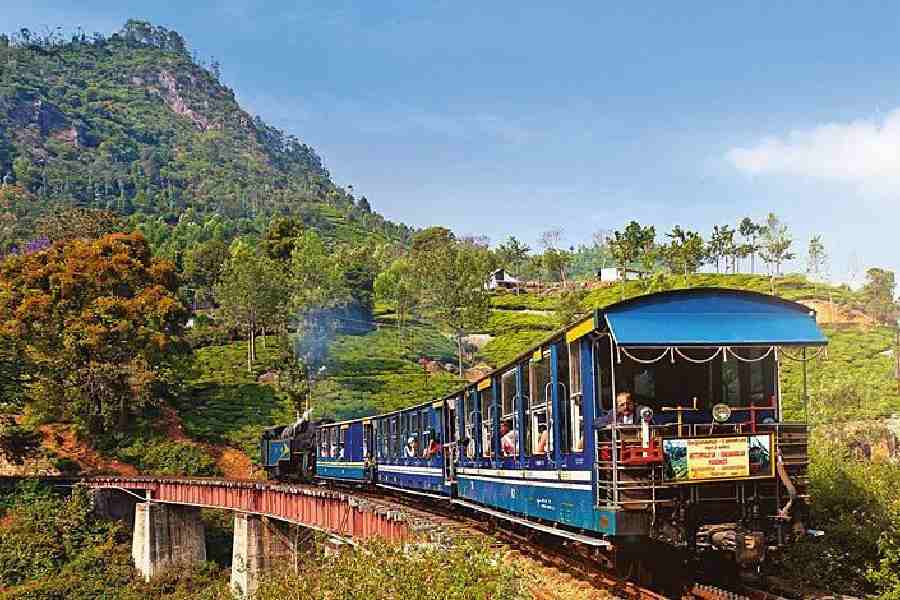New Delhi, Oct. 30: The BJP today said Jawaharlal Nehru didn’t attend Rajendra Prasad’s funeral, wading into another post-Independence era row days after Narendra Modi’s purported claim that India’s first Prime Minister wasn’t present at Vallabhbhai Patel’s last rites.
“Nehru did not go to Rajendra Babu’s funeral,” BJP spokesperson Ravi Shankar Prasad said at a news conference today as he referred to the cremation of Rajendra Prasad, who was India’s first President but was out of office when he passed away in February 1963.
Ravi Shankar Prasad, who like Rajendra Prasad is from Bihar and belongs to a family of Jan Sangh leaders, recalled that as a young boy that year, he had attended the funeral but did not see Nehru. “He came later for a condolence meeting,” the senior BJP leader added.
Ravi Shankar Prasad’s comments came despite a tweet by Modi claiming that the statement about Nehru not attending Patel’s funeral was “wrongly” attributed to him. This followed texts and pictures that showed that Nehru was present at the event, embarrassing the BJP’s prime ministerial candidate.
Ravi Shankar Prasad’s claims today came in the middle of his party’s sparring with the Congress over Patel. It also coincided with the Sangh’s perceived efforts show Nehru was not quite the supreme nationalist in a pantheon that included Patel, Rajendra Prasad, Subhash Bose and others.
According to Ravi Shankar Prasad, incumbent President S. Radhakrishnan and Nehru’s cabinet colleague Lal Bahadur Shastri had come to Patna for Rajendra Prasad’s funeral, although he added that Nehru disapproved of Radhakrishnan’s presence. Ravi Shankar Prasad’s claims seemed drawn from separate books by historians Jagdish Chandra Sharma and co-authors K. Satchidananda Murty and Ashok Vohra.
According to Sharma, Nehru was preparing to leave for Rajasthan to collect money for the Prime Minister’s Relief Fund for a famine. He wrote to President Radhakrishnan expressing inability to attend Rajendra Prasad’s funeral. Nehru, Sharma says in the book, counselled Radhakrishnan not to go to Patna. The President first attempted to persuade Nehru to accompany him but when that failed, Radhakrishnan ignored Nehru’s advice and went ahead, Prasad says in his book. Today, Ravi Shankar Prasad Prasad gave no reason for raking up the controversial nugget in a season of feuding over political legacies. But BJP sources said the aim was to ruffle chief minister Nitish Kumar.
At the centre of the duel was Jai Prakash Narayan, whom Modi had accused Nitish of “disowning” during his speech at the Patna rally on Sunday.
With Nitish visibly cosying up to the Congress and the Gandhis, the BJP hoped to use Nehru’s alleged “slight” to Rajendra Prasad as another instance of how the family treated other icons.
The Gujarat chief minister was painted into a corner after he allegedly claimed to an Ahmedabad paper that Nehru had not gone for Patel’s funeral in Mumbai. His purported claim was belied with texts and pictorial evidence that showed that Nehru present at the event but did not speak because he was overwhelmed with emotion.
An embarrassed Modi tweeted to say that the paper, Divya Bhaskar, had clarified that the statement was “wrongly” attributed to him.
But none of that today deterred Ravi Shakar Prasad, who continued to insist Nehru was absent at Patel’s funeral, claiming his “information” came from “reliable sources”. “Not only did he not go, he directed his ministers not to go on state expense. I would be happy to be corrected,” he said.
BJP sources wondered why Ravi Shakar Prasad had to take up the matter after Modi’s “clarification”.
The Congress-BJP battle to claim ownership over Independence icons was not heading for an early conclusion.
Modi’s blog posted today said on October 31, Patel’s birth anniversary, Gujarat would lay the foundation stone of the “Statue of Unity” of Patel. At 182 metres, the statue — billed as a “tribute” to the Iron Man—is expected to tower over New York’s Statue of Liberty.
Modi conferred on Patel not only the “Iron Man” honorific. He called him a “kisan putra” or the son of a farmer. Patel had spent his formative years at Karamsad, a small town in Gujarat’s Anand district. Like Gandhi, he studied law in England and went on to become a highly qualified barrister.










